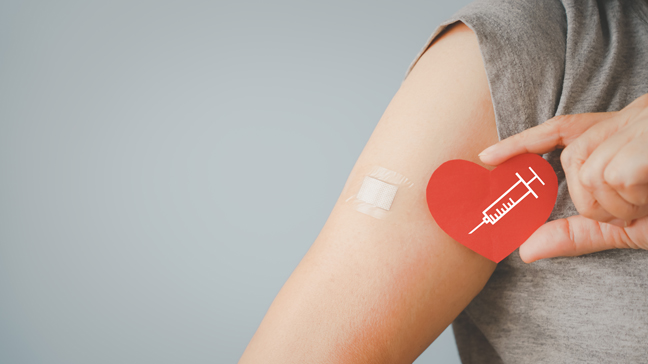- Diseases
- Acoustic Neuroma (14)
- Adrenal Gland Tumor (24)
- Anal Cancer (66)
- Anemia (2)
- Appendix Cancer (16)
- Bile Duct Cancer (28)
- Bladder Cancer (68)
- Brain Metastases (28)
- Brain Tumor (228)
- Breast Cancer (714)
- Breast Implant-Associated Anaplastic Large Cell Lymphoma (2)
- Cancer of Unknown Primary (4)
- Carcinoid Tumor (8)
- Cervical Cancer (154)
- Colon Cancer (164)
- Colorectal Cancer (110)
- Endocrine Tumor (4)
- Esophageal Cancer (42)
- Eye Cancer (36)
- Fallopian Tube Cancer (6)
- Germ Cell Tumor (4)
- Gestational Trophoblastic Disease (2)
- Head and Neck Cancer (6)
- Kidney Cancer (124)
- Leukemia (344)
- Liver Cancer (50)
- Lung Cancer (288)
- Lymphoma (284)
- Mesothelioma (14)
- Metastasis (30)
- Multiple Myeloma (98)
- Myelodysplastic Syndrome (60)
- Myeloproliferative Neoplasm (4)
- Neuroendocrine Tumors (16)
- Oral Cancer (100)
- Ovarian Cancer (170)
- Pancreatic Cancer (166)
- Parathyroid Disease (2)
- Penile Cancer (14)
- Pituitary Tumor (6)
- Prostate Cancer (144)
- Rectal Cancer (58)
- Renal Medullary Carcinoma (6)
- Salivary Gland Cancer (14)
- Sarcoma (236)
- Skin Cancer (294)
- Skull Base Tumors (56)
- Spinal Tumor (12)
- Stomach Cancer (60)
- Testicular Cancer (28)
- Throat Cancer (90)
- Thymoma (6)
- Thyroid Cancer (98)
- Tonsil Cancer (30)
- Uterine Cancer (78)
- Vaginal Cancer (14)
- Vulvar Cancer (18)
- Cancer Topic
- Adolescent and Young Adult Cancer Issues (20)
- Advance Care Planning (10)
- Biostatistics (2)
- Blood Donation (18)
- Bone Health (8)
- COVID-19 (362)
- Cancer Recurrence (120)
- Childhood Cancer Issues (120)
- Clinical Trials (622)
- Complementary Integrative Medicine (24)
- Cytogenetics (2)
- DNA Methylation (4)
- Diagnosis (226)
- Epigenetics (6)
- Fertility (62)
- Follow-up Guidelines (2)
- Health Disparities (14)
- Hereditary Cancer Syndromes (122)
- Immunology (18)
- Li-Fraumeni Syndrome (8)
- Mental Health (118)
- Molecular Diagnostics (8)
- Pain Management (64)
- Palliative Care (8)
- Pathology (10)
- Physical Therapy (18)
- Pregnancy (18)
- Prevention (886)
- Research (388)
- Second Opinion (74)
- Sexuality (16)
- Side Effects (602)
- Sleep Disorders (10)
- Stem Cell Transplantation Cellular Therapy (216)
- Support (404)
- Survivorship (322)
- Symptoms (186)
- Treatment (1770)
Childhood cancer caregiver is passionate about serving our children
3 minute read | Published January 17, 2024
Medically Reviewed | Last reviewed by an MD Anderson Cancer Center medical professional on January 17, 2024
When it comes to MD Anderson’s pediatric cancer patients, Tomika Gamble is the agent of fun.
As program director for pediatric support programs, Gamble handles camps, prom and other special events for some of the hospital’s youngest patients and their families.
“I like to say I’m responsible for putting smiles on the faces of many,” says Gamble.
Part of that is because of the unique aspect of the programming, which serves the entire family. For example, Gamble’s team hosts a three-party prom where patients, their caregivers and siblings can all take part in exciting activities.
“I’ve had dads run up to me after events and say, ‘Y’all are amazing,’” she says. “Sometimes the kids are in tears when they get back into their parents’ cars after camp because they enjoyed themselves so much and don’t want to leave.”
A son's childhood cancer diagnosis
The old adage, ‘If you do what you love, it doesn’t feel like work,’ rings true for Gamble.
“I probably have the most enjoyable job at MD Anderson,” she says. “My goal is to give our pediatric patients a sense of normalcy.”
Gamble knows firsthand how much that’s needed.
When her oldest son, Isaiah, was diagnosed with a rare form of lung cancer at age 3, she was pregnant with her second son.
“It was a very difficult time for our family,” recalls Gamble, who had previously lost her grandmother to salivary gland cancer and her aunt to pancreatic cancer.
At the time, Gamble was doing public relations for a local school district, and her husband was a coach in another local school district.
“We received so much support from our community,” she says. “Our community taught us the importance of giving, so once my son’s treatments were done, it then became: ‘How can we give back?’”
Passion and purpose come together
Gamble started a nonprofit to support children facing life-threatening medical conditions, which gave her the opportunity to work on events with MD Anderson. When she applied for and ultimately accepted a role at MD Anderson managing pediatric support programs in 2018, it was a dream come true.
“I had wanted to work at MD Anderson for a long time, but I didn’t know where I fit in,” says Gamble. “It was a blessing to watch it come full circle – my son’s cancer diagnosis and my experience in PR and special events helped me take on the responsibilities of my role and really connect with the families we serve.”
Gamble’s family also volunteers with MD Anderson’s programs. Isaiah, now 17, is a summer camp counselor at Camp Star Trails where children ages 6 to 14 can attend. They have the opportunity to begin training to be counselors starting at age 16. Isaiah has also participated in MD Anderson’s Boot Walk to End Cancer®.
“At MD Anderson, I know I’m doing the work that God placed me on this earth to do,” says Gamble. “When you find that passion and that purpose, it’s the most amazing feeling ever.”
Request an appointment at MD Anderson online or call 1-888-964-4259.
Related Cancerwise Stories

I like to say I’m responsible for putting smiles on the faces of many.
Tomika Gamble
Program Director, Pediatrics – Support Programs





